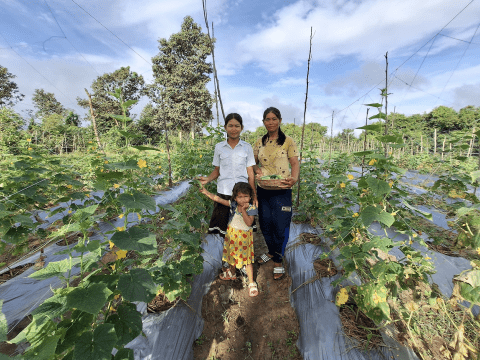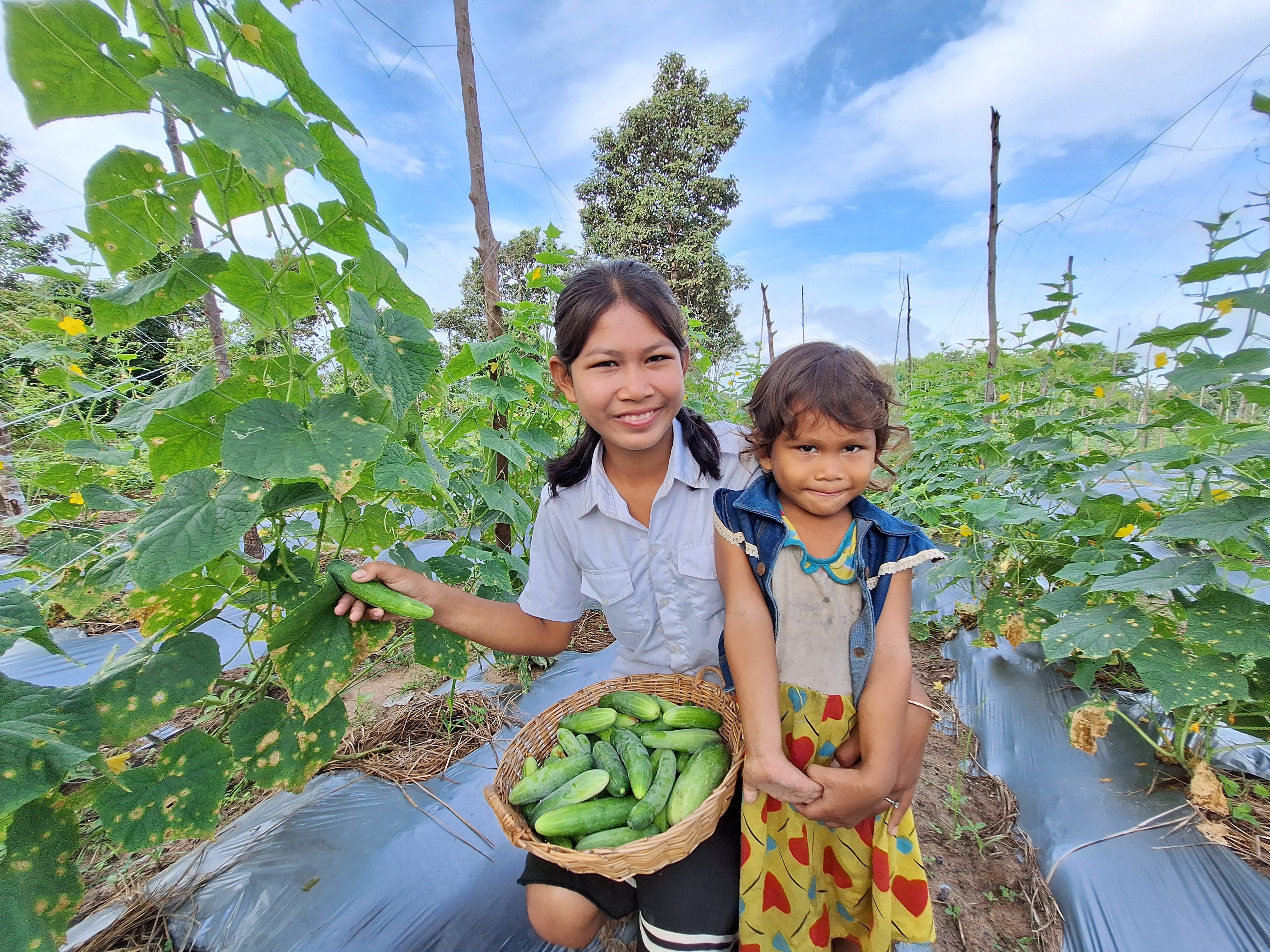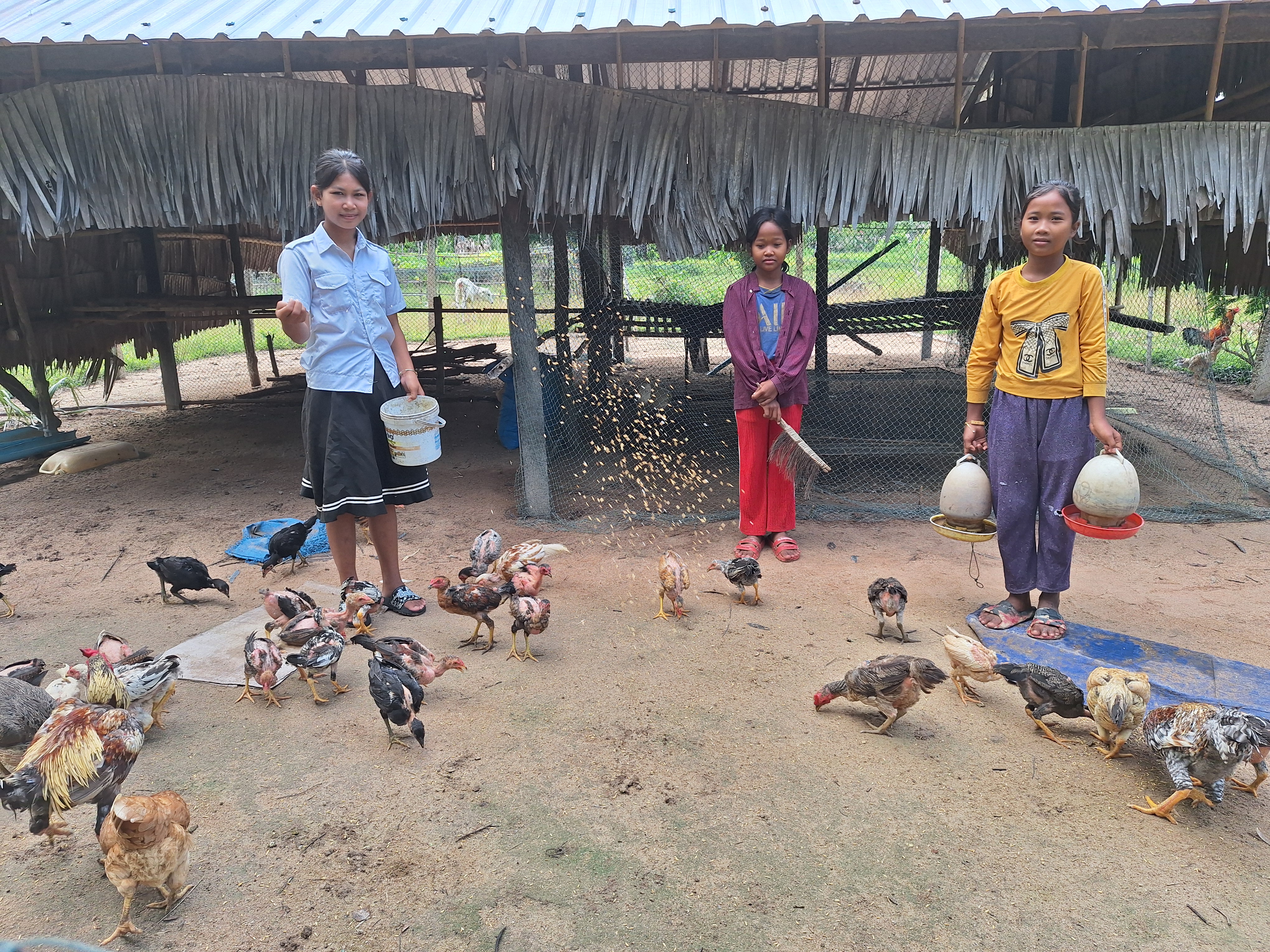How a Cambodian farmer transformed the future of her children

Sochan, a 44-year-old farmer from Anhchanh Rong commune in Kampong Chhnang province, was raised in a rice-farming family. For years, she struggled with poor soil, unreliable rainfall, and excessive usage of chemical inputs, which meant she could not make any profit. She has now evolved into a contemporary vegetable integration producer, dedicated to hard work and sharing her skills.
“A few years ago, this land was a struggle. It was overgrown with long grass, marred by a dirty, dusty pool, and troubled by unpredictable rainfall. Our crops failed repeatedly due to numerous issues—infertile soil, overuse of chemical fertilisers, pesticides, and herbicides, and the market selling price during harvest time was also notfavourable,” Sochan said. 
The agricultural cooperative leader and the community had a joint discussion about opportunities for supplying vegetables to other, neighbouring communities. Through the Building Secure Livelihood (BSL) project, implemented across 168 villages in Cambodia, Sochan gained access to training on climate-smart agriculture and sustainable farming. The project, which has benefited over 46,000 people, including 19,150 children, focuses on helping vulnerable households achieve food security and financial stability.
Sochan saw this as a chance to improve her family's income through diversified agricultural production and new market opportunities. She joined one of 39 agricultural cooperatives supported by the programme, and began experimenting with growing vegetables in a small area. Also, Sochan continued to join capacity-building courses, such as Climate-Smart Agriculture and Livestock, provided by the project.
Encouraged by her first income from vegetable production, she and her husband decided to scale up production and allocated 2,000 m² of rice fields around their house for vegetable farming and another 2,000 m² for raising chickens.
"I earn 2,300,000 riels ($575) in just four months from raising chickens, three times a year, and I earn an additional 600,000 riels ($150) each month from selling vegetables in the community," Sochan shared proudly.
The savings groups and financial literacy training, part of the BSL project’s poor community financial system, have helped over 3,470 members, including 2,487 women, access credit for farming. Sochan used these financial resources to scale up her production.
She also adopted climate-smart farming practices, which improved efficiency and sustainability, such as diversified cropping, drip irrigation, and using organic fertilisers made from chicken waste.
“I practised diversified cropping—growing long beans, cucumbers, and watermelons—using plastic covers, drip irrigation, and organic fertiliser made from chicken waste, and utilised vegetable waste as chicken feed, creating a sustainable cycle,” she continued.

Today, her income has stabilised, allowing her to save for her children’s education and ensure her household's food security. The steady income has improved her family's life and promises a brighter future.
“World Vision’s assistance in providing training, resources, and ongoing guidance was the highlight in my journey from a struggling rice farmer to a thriving modernised vegetable integration grower,” Sochan said.